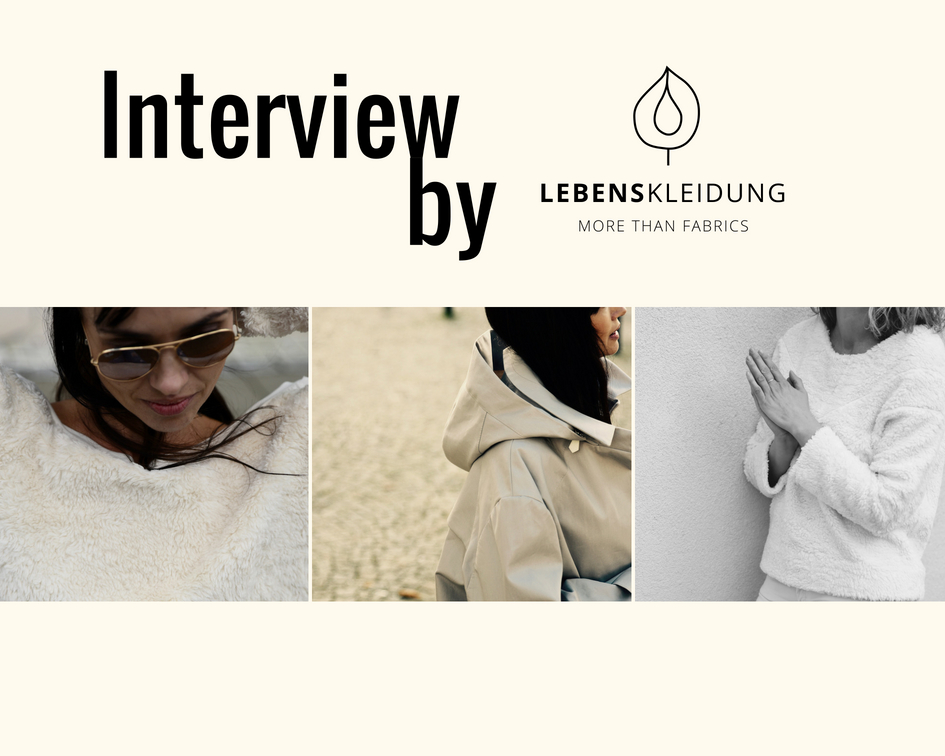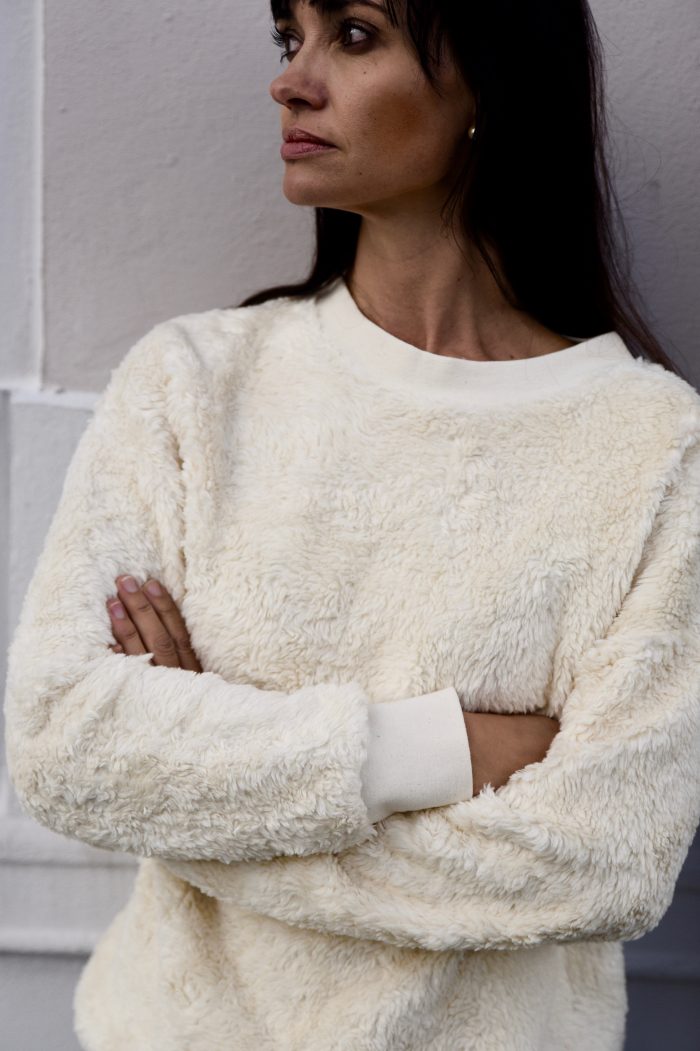
We hope, you've all had a fantastic day off yesterday and, thanks to that, will have a very smooth start into the weekend! Today, we are super happy to be able to share this interview with Hilde from Norwegian label "Ordinær by Rubecksen". Her designs are beyond beautiful and we cannot wait to get and wear them! For now, enjoy the little chat we've had with her and have a great weekend!
Hey Hilde, could you briefly introduce yourself, please?
My name is Hilde Stiegler Rubecksen and I am the founder of womenswear label Ordinær by Rubecksen. I have an MA in fashion womenswear from the Royal College of Art in London where I worked for several years before returning to Norway a few years ago.
An obvious question first: What does ‘Ordinær’ stand for, what led to you picking the name?
Ordinær means ‘ordinary’ in English and ‘ordinaire’ in French, and has similar meanings ranging from common and banal to simple and neutral. I love the sound of this word, and how it somehow embodies the mundane and normal. To me it also embraces the potential beauty in what may be considered the ordinary, and I am interested in how and what determines when something moves from being ordinary to becoming extraordinary. The ‘O’ in Ordinær also represents spaciousness to me – like a space ready to be filled. So, in fact, it is very open.
When was the brand founded, and what drove you into doing so?
The brand was founded in 2016. As a designer I love to create, and I love beautiful things and textiles. I like to consume, but I also have an almost innate attraction or fascination for recycling or making use of what is already there or left over. This combination somehow inspires me and represents some of the aspects that drove me into design and starting my own label. [caption id="attachment_2763" align="aligncenter" width="613"] © Heidi Fagerlid[/caption]
© Heidi Fagerlid[/caption]
How many people work at the label, how important were and are big or small working structures for you?
I am working alone at the moment, but I hire in help when needed. In time I would like to have a small team working with me, hopefully in the near future. I prefer smaller working structures, but this may just be because I have more experience working in smaller scale companies.
Do you mostly sell your clothes online or also in-store, and for which reasons?
I have done both and would like to continue doing that with a main focus on selling directly to customers online and through a physical brand shop. I would like to do both because I think it is important to be present both online and in-store in order to reach more customers and to allow the customers to see products in a store environment where they can touch, feel and try on the garments – as well as being available online.
Wie steht es um die nachhaltige Modeszene in Norwegen? Tut sich eine Menge und bemerkst Du einen Weg hin zu mehr Nachhaltigkeit?
There is a growing interest and appreciation for sustainable fashion in Norway, especially within childrenswear, but a lot of people are not necessarily willing to choose sustainable fashion when they shop – for various reasons. People are however becoming more and more aware of the food they buy and where it comes from – and making consumer choices based on this - so I think and hope that this will also be the case within fashion more and more in the coming years. [caption id="attachment_2764" align="aligncenter" width="404"] © Heidi Fagerlid[/caption]
© Heidi Fagerlid[/caption]
What difficulties do you often have to deal with and how do you solve them?
I think it is difficult to meet the high quantities often required in garment production and when buying fabrics. I have to be very selective about the styles I put into production and try to select fabrics that I can make use of several times in order to meet the quantities required. Also, finding companies that produce organic and recycled textiles and factories that produce sustainably can be challenging, and making customers aware of the importance - and often times meaning - of sustainability.
Out of curiosity: How did you find out about Lebenskleidung?
I found Lebenskleidung while researching organic fabrics online.
What does sustainability mean for you – in your job, but also personally?
To me sustainability is very important. It has many layers and can be expressed in many ways and this is something I always aim to explore both in my personal life and in my business. This is of course challenging at times, especially at work, but I find it rewarding. I think sustainability can be embraced in many ways - through using organic, recycled or vintage fabrics or dead stock materials as well as making sure of good working conditions for everyone involved - to mention a few. I also hope to explore and take part in other aspects of circular economies and upcycling, and I am fascinated by the idea of taking something unwanted and creating something that is desirable from it – especially when this is used as a means to mitigate our environmental impact.
How important are network-structures for you – do you regularly participate in roundtables or fairs etc.?
I sometimes visit Premiere Vision in Paris, but I rarely visit other fairs. I would really like to do this more often – and also attending events where I can promote my own label.
How would the ideal consumer landscape look like for you?
My ideal consumer landscape revolves a lot around sustainability, timelessness and quality above quantity. I appreciate products that are at the same time beautiful and functional, and that can have a long life because of their quality, but also because they invoke care and appreciation in its owner – and products that age well. Customers who shares these values and qualities and who are able and willing to pay for them would be how my ideal customer landscape would look like.
